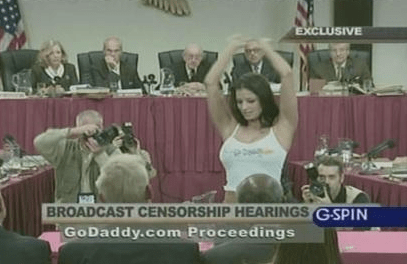You know who got a lump of coal in their PR stocking this year? Domain registrar GoDaddy. Its most recent stumble? The company’s presence on a SOPA supporter list sparked an impromptu user exodus last week, with already tens of thousands of domains being transferred in the fall out.
Sensing a communications disaster (GoDaddy has gotten really good at this) the new CEO Warren Adelman then reversed the company’s official position on SOPA, well kind of.
Despite the ambiguous reversal, the ramifications of the continuing PR disaster are huge, and “Dump GoDaddy Day” is still slated for the 29th” Perhaps that’s why GoDaddy reps are calling customers in order to make sure they understand the company’s new, reversed position?
If thing’s weren’t bad enough for GoDaddy, competitor NameCheap accused it of blocking domain transfers this morning, “As many customers have recently complained of transfer issues, we suspect that this competitor is thwarting efforts to transfer domains away from them. Specifically, GoDaddy appears to be returning incomplete WHOIS information to Namecheap, delaying the transfer process. This practice is against ICANN rules. ”
Namecheap said that its solution to the incomplete WhoIs returns was to manually process the requests, which it was doing.
Accusations like these should not be taken lightly, and GoDaddy responded to Namecheap in a statement emailed to TechCrunch, saying that the WhoIs transfer delay time is normal procedure.
Namecheap posted their accusations in a blog, but to the best our of knowledge, has yet to contact Go Daddy directly, which would be common practice for situations like this. Normally, the fellow registrar would make a request for us to remove the normal rate limiting block which is a standard practice used by Go Daddy, and many other registrars, to rate limit Whois queries to combat WhoIs abuse.
Because some registrars (and other data gathering, analyzing and reporting entities) have legitimate need for heavy port 43 access, we routinely grant requests for expanded access per an SOP we’ve had in place for many years. Should we make contact with Namecheap, and learn they need similar access, we would treat that request similarly.
As a side note, we have seen some nefarious activity this weekend which came from non-registrar sources. But, that is not unusual for a holiday weekend, nor would it cause legitimate requests to be rejected. Nevertheless, we have now proactively removed the rate limit for Namecheap, as a courtesy, but it is important to point out, there still may be back-end IP addresses affiliated with Namecheap of which we are unaware. For complete resolution, we should be talking to each other — an effort we are initiating since they have not done so themselves.
-Rich Merdinger
Sr. Director of Product Development – Domains
Go Daddy
One side says the practice is “against ICANN rules.” The other side says the practice is “standard.” Any DNS experts want to weigh in?
Update: According to an industry expert, limiting WhoIs requests is pretty standard to prevent abuse, “My guess is nothing particularly nefarious [is going on] here.” Namecheap is now claiming that it warned GoDaddy of the delay before it posted its blog.
Image via: AdJab
